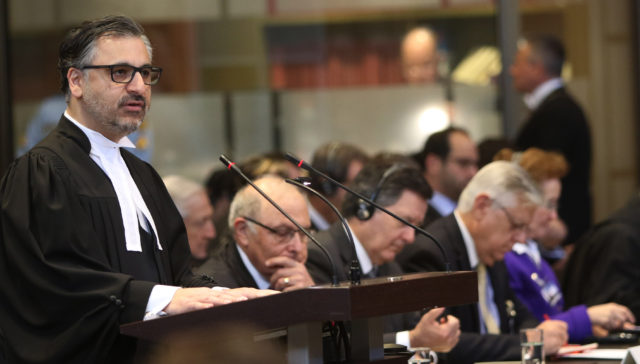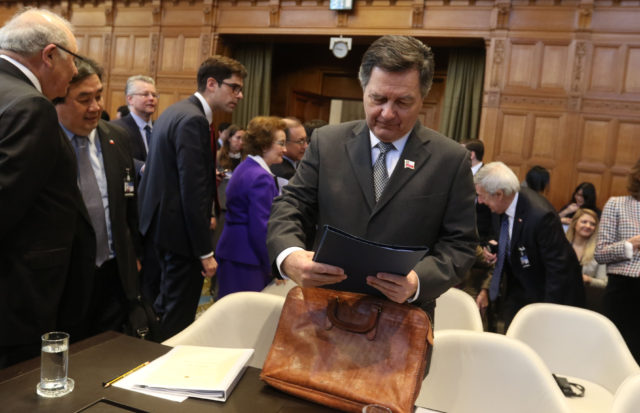Bolivia ended its round of oral arguments at the International Court of Justice (ICJ) this Monday asking Chile to establish a dialogue that promptly grants them a sovereign access to the Pacific Ocean after losing its coastline in 1883, when the War of the Pacific came to an end.
The land-locked nation reaffirmed that its neigbour has had that obligation all along given that, in the past, successive Chilean governments have supported their claim through notes and diplomatic exchanges, which has been “blatantly breached” in their opinion.
In that way, Iranian barrister Payam Akhavan assured that Chile “had historically been willing to negotiate an access to the sea”, but that it has failed to fulfill said duty.

Following Akhavan it was Spanish lawyer Antonio Remiro Brotons’ turn to speak in front of the fifteen UN judges, intervention in which he accused that Chile “took over” the sea in a blameable manner.
“Neither God nor The Crown gave them littoral, they did it coercively, breaking a border treaty”, he emphasized.
Another member of the defense, Amy Sander, questioned Chile’s position and criticized that it used part of an Organization of American States resolution to assure it had no obligation to engage in talks with the Andean nation.
“A resolution cannot be denied, even one of recommendatory nature”, she added.

Meanwhile, Vaughan Lowe described the lack of ocean access to be detrimental for the country’s economy.
“This unresolved economic loss can lead to tensions that may alter both bilateral relations and peace”, he warned.
On the other hand, Chilean Foreign Secretary, Roberto Ampuero, refuted those arguments and accused that president Evo Morales’ conduct “keeps Bolivia cloistered in the XIX century”.
“Chile did not cloister Bolivia. It has been president Morales who has done that”, Ampuero said from the footsteps of the Peace Palace.
He also encouraged the country to stop searching for its future by looking to the past. “If they do not stop, it will only give arguments to politicians who wish to linger in power”, in clear reference to the head of the Bolivian Government.









